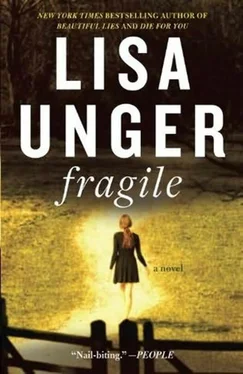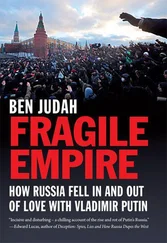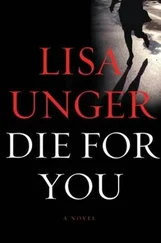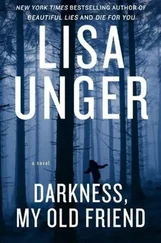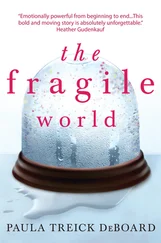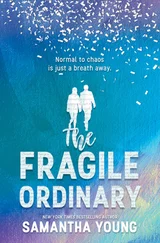Maggie put the car in reverse and backed out of the drive. Henry put a hand on her shoulder. “He’s okay,” he said. “Maybe he snuck in there and went to sleep. Should we drive by and look for his car?”
It was tempting, but Elizabeth’s house was on the other side of town. If Ricky was there, he was safe. The urgency to find Marshall was high. Maggie said as much.
“Where’s Jones now?” asked Henry.
“I have no idea.” She didn’t mean to sound clipped and angry. But she was angry. Why should she have to lean on her friend in this crisis? She should be with her husband.
“This is all going to turn out all right,” he said. “You’ll see.”
But the stone in her gut told her something different.
The voices he’d heard were gone. And he was alone with the sound of his own breathing as he made his way through the woods. The only light came from the sliver of moon above him. Down by the lake, he saw the old boathouse. It tilted against the night sky, looked about ready to fall into the water. He knew the chief kept a boat, an ancient cabin cruiser. He remembered taking it out onto the lake with Travis, drinking and fishing, lying on its bow. Last time he’d talked to the chief, the old man said that it was still seaworthy, that he still fished off it.
He stood and tried to quiet his breathing, to ignore the pain in his side, in his chest. Above him, he saw the shadow of a large bird circling. A barred owl was using the scant light to hunt. The next thing he knew, he was on his knees again. If he believed in God, he’d use the opportunity to pray. But he didn’t believe in God. He didn’t believe in anything, not even himself.
After he’d discovered Sarah’s body gone, Jones drove to Crosby’s house next. He saw Chief Crosby’s big red pickup parked in front of the carriage house. Before Jones killed the engine in the drive, Travis was out on the front step moving toward him. He had his hands pressed deep in his pockets, his shoulders hiked up like a vulture. Inside the screen door, Jones could see Chief Crosby’s formidable frame. As Jones exited the Mustang, he heard the engine pinging, cooling in the night air.
“What are you doing here, Cooper?” Travis came up close to him.
“Where is she?” Jones asked.
“Who?” said Travis. He narrowed his eyes in what seemed to Jones a caricature of menace. All he saw when he looked at Travis was fear.
“Sarah.”
“I don’t know what you’re talking about.” Travis leaned back and looked up at the sky.
“Travis. Come on. It was an accident.”
Chief Crosby stepped out of the house then. Jones stared at him, felt the familiar dread he had whenever the chief was around. The man was a ghoul, a monster. Jones would see that later. But then, he was a titan, somebody everyone in The Hollows looked upon with respect and admiration. The sight of him shut them both up.
“Boy,” the chief said. “It’s done. Walk away and keep your mouth shut.”
“No. Where is she?” Jones’s whole body quaked-with fear, with anger. The expression on Travis’s face was a mirror of his own heart.
The chief came down off the step and strolled toward them easily. “You left your jacket,” he said. “It’s got her blood all over it.”
And Jones remembered again that Sarah’s things were still in his trunk. Chief Crosby must have seen the understanding dawn on Jones’s face, because he let out that hooting Crosby laugh, a laugh Jones would hear every time he heard Travis laugh.
“Well, I can see you’re not stupid like your old man,” said Chief Crosby. “Question is, are you a coward like him?”
The words sliced Jones to the bone. In that moment, all his righteous anger, even his fear, deserted him. All he felt was a crippling shame. And it was in that place of shame that he made the decisions he made that night, and every decision that followed.
It took Jones a second to differentiate Marshall from the tree he leaned against. The boy sat on the ground, a gun in his hand. In the moonlight he was ghostly pale, looked as limp and weak as a scarecrow off his pole.
It was so strange to see Marshall there that, for a second, Jones thought he might be hallucinating. This strange mingling of the past and the present had him badly off-kilter. If Jones had been standing, not kneeling, he might have walked right by Marshall. The kid was so still and quiet.
“Are you hurt, Son?” Jones asked.
Marshall didn’t seem to hear him, appeared dazed and not present. Jones stood and approached him slowly, reached down, took the gun from his hand. The gun, a semiautomatic, was warm to the touch, recently fired. He could tell by the weight that it was loaded. The boy let it go without resistance, let his arm flop to his side. Jones tucked the gun into his empty shoulder holster.
Marshall turned his face to look up at Jones. “How do you know if you’re a good person or a bad one?” he asked.
Jones didn’t know the answer. How could he? He thought about his wife again. If Maggie were here, she’d know what to say to Marshall. Maggie was sure about these things. She knew the answers to the hard questions.
“I don’t know,” said Jones. He had a sense that the situation called for honesty, and that was about as honest as he could be. “I really don’t know.”
Marshall gave a slow nod and looked at him with something like gratitude.
“What’s happened here, Marshall? Talk to me. Where’s your father?”
But Marshall had the glassy gaze of someone slipping into shock. Jones leaned in close, but the boy didn’t seem to be injured. There was no blood, no outward sign of trauma.
“Did you bring her here, Marshall? Is this where you brought Charlene after you picked her up?”
Marshall nodded absently. “I’m sorry. I’m sorry for every bad thing.”
“Marshall,” said Jones. He bent down to pick up the rifle he’d dropped when he fell to his knees. “Where is she, Son?”
Jones thought he saw a flash of light then and heard the approach of a vehicle. He hoped it was Chuck. It wouldn’t be too far a logical leap for him to go to Travis’s house after Strout’s, then proceed here in the search for Marshall. Chuck would see the vehicle in the drive, notice that the rifle had been removed from the hatch. Chuck would move into the woods, gun drawn, good cop that he was.
Why hadn’t he told someone where he was going or called for backup? Jones could tell himself that it was urgency, a rush to get to Charlene if she was, in fact, here. But really it was just arrogance, a lack of foresight. The same personal flaws that had allowed him to turn his back on Travis, that would allow him to proceed to the boathouse, rather than turn around and get help first.
He looked at the boy on the ground, though he wasn’t really a boy anymore, with stubble on his jaw, at least as tall as his father. If Jones still had his handcuffs, he’d have made Marshall lie on his belly, secured his hands behind him. But those were gone, too. He had a hunch the kid wasn’t going anywhere.
“Marshall, stay where you are. Don’t move until I come back for you.”
“Yes,” Marshall said. But Jones felt as though he was answering a question Jones hadn’t asked.
Jones left the Crosby property that night so many years ago. And just as he was told, he never said another word to anyone about what happened to Sarah. When he returned home, his mother had been near hysteria-Where had he been? What had he done?
“It’s over,” he’d told her. “It never happened.” And so it was.
He’d kept Sarah’s belongings locked in the trunk of his car for a few days, while the storm of her being declared missing and her body discovered miles from where he knew she died raged around him. He was ready for the police to come with that jacket, to kiss his life and all his hopes good-bye. In fact, he almost hoped uniformed men would walk through his front door and take him away.
Читать дальше
